
OR
India's ban on rice exports sparks fear of global food crisis
Published On: August 5, 2023 05:30 PM NPT By: Republica | @RepublicaNepal
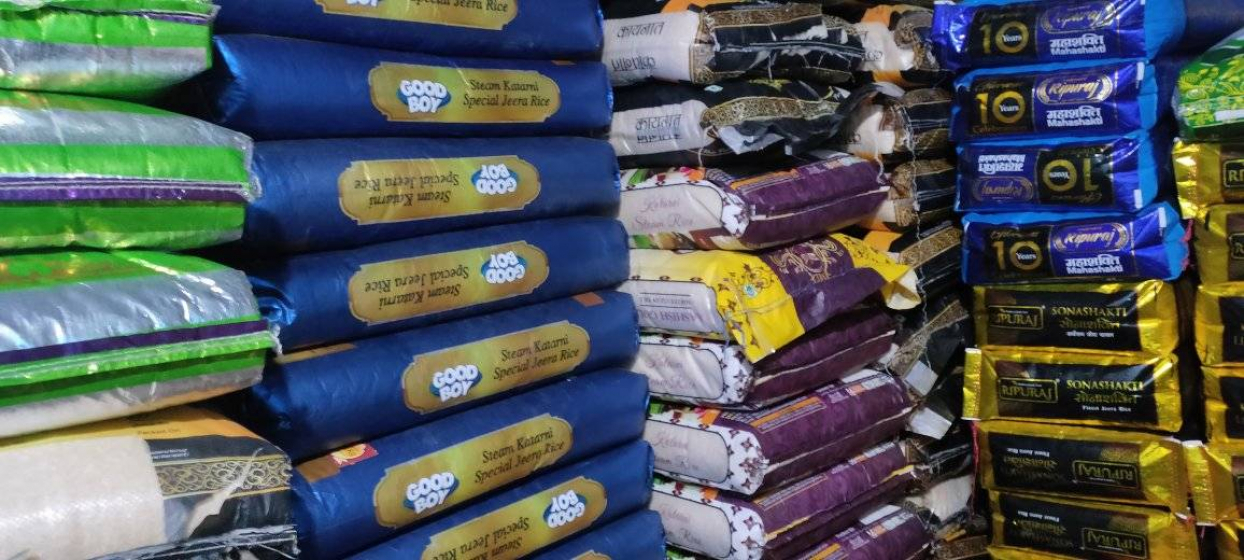
KATHMANDU, Aug 5: India’s ban on rice exports has the potential to deal a major blow to the global food crisis. On July 20, India imposed a ban on exports of non-Basmati white rice to control rising domestic rice prices.
India decided to ban exports after reports and videos of rice shortages in Indian grocers in the US and Canada started pouring in. This ban has led to an increase in the prices of rice and other food items in various countries worldwide.
Now, there are thousands of varieties of rice, which are grown and consumed. But even in that four types of rice are considered as the main groups which are traded worldwide. Thin long grain indica rice accounts for a large share of global trade. But the rest is made of fragrant or other fragrant rice like Basmati. In which short-grain japonica rice is used for sushi and risottos, while glutinous or glutinous rice is used for desserts.
India is the world's top exporter of rice, accounting for about 40 percent of global trade in grains produced. Along with India, Thailand, Vietnam, Pakistan and the USA are other top rice exporters. The major buyers of rice are countries like China, the Philippines and Nigeria.
In addition, Indonesia and Bangladesh are considered swing buyers, increasing their imports when domestic supply is insufficient. Africa, Cuba, and Panama heavily rely on rice consumption as a primary energy source. In last fiscal year, India exported 220 million tonnes of rice to 140 countries. Of that, 6 million tonnes was the relatively cheap indica white rice. At that time the estimated global trade in rice was 56 million tonnes.
Indica rice dominates about 70 percent of the global trade in white rice. And India has now stopped exporting it. The rice comes on top of a ban on broken rice exports last fiscal year and a 20 percent tariff on exports of non-Basmati rice.
Concerns that the ban will increase the global food price
The July export ban has raised concerns about global rice prices. International Monetary Fund (IMF) Chief Economist Pierre-Olivier Gourinchas estimates that the ban will push up prices and that global food prices could rise up to 15 percent this year.
Similarly, Shirley Mustafa, a rice market analyst at the Food and Agriculture Organization of the United Nations (FAO), says that India's export ban has not come at a particularly convenient time. On the one hand, global rice prices have been rising steadily since the beginning of 2022, with an increase of 14 percent since last June. Second, the supply chain is under stress as the new crop is still three months away from reaching the market.
Adverse weather in South Asia, uneven monsoon rains in India and damage caused by floods in Pakistan have affected supplies. The cost of paddy production has increased after the increase in the price of fertilizers. The devaluation of currencies has increased import costs for many countries. But high inflation has increased business borrowing costs.
India has more than three times the required amount of rice for its strategic reserves and Public Distribution System (PDS). India has only 41.1 million tons of rice in stock, which provides cheap rice to more than 700 million poor people.
India has been facing food inflation since last year. Domestic rice prices have increased by more than 30 percent since last October. This has resulted in increased political pressure on the government ahead of next year's general elections. Also, rising cost of living coupled with a host of federal-level elections in the coming months poses a challenge to the government.
42 countries including Nepal depend on India for rice
Many believe that India should avoid banning rice exports because it is detrimental to global food security. According to the International Food Policy Research Institute (IFPRI), about 42 countries rely on India for rice supply, which is more than half of the rice imports from India, including Nepal.
India's market share in rice imports to many African countries exceeds 80 percent. The top rice consuming countries in Asia are Bangladesh, Bhutan, Cambodia, Indonesia, Thailand and Sri Lanka. For example, the share of rice consumption in total daily caloric intake ranges from 40 percent to 67 percent.
16 countries to ban food exports after Russian invasion in Ukraine
India's ban allows some government shipments to countries on food safety grounds. Food export restrictions are not new.
After Russia's invasion of Ukraine last year, the number of countries that have banned food exports has risen from three to 16, according to IFPR. Indonesia banned palm oil exports, while Argentina banned beef exports.
Similarly, Turkey and Kyrgyzstan imposed restrictions on a range of grain products. Some 21 countries imposed export restrictions on various products in the first four weeks of the Covid-19 pandemic.
Experts say India's export ban poses huge risks
Experts say that India's export ban poses huge risks. They warned that this would certainly lead to a spike in the global price of white rice and adversely affect the food security of many African nations.
Ashok Gulati and Rai Das of Delhi-based Indian Council for Research on International Economic Relations (ICRIER) think-tank have given this warning that it could harm India's reputation as a reliable rice supplier.
They say India should avoid such sudden bans to become a responsible leader of the Global South in the G20. Therefore, this ban imposed now will cause great damage to India. They say that India will be mistrusted as a rice supplier.
You May Like This
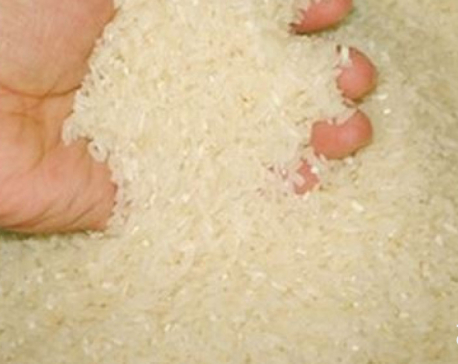
India lifts ban on rice export, allows export of 95,000 tons of rice to Nepal
KATHMANDU, Oct 18: India has withdrawn its three-month long ban on rice exports to Nepal. ... Read More...
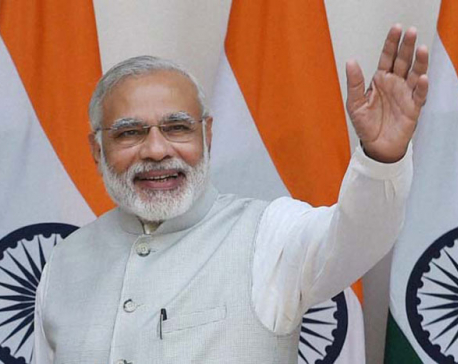
Nepal good friend of India: Deuba, India ready to support Nepal's development: Modi
NEW DELHI, Aug 24: Prime Minister Sher Bahadur Deuba, who is currently on a five-day state visit of India, said... Read More...
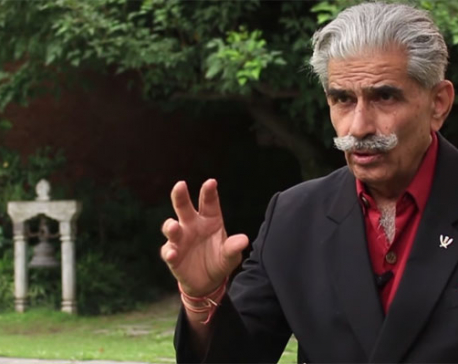
China outrunning India in Nepali politics, India mulling a new strategy
With an unprecedented activeness of China, India seems preparing to counter it. India's Nepal Affairs expert and retired Indian Army... Read More...


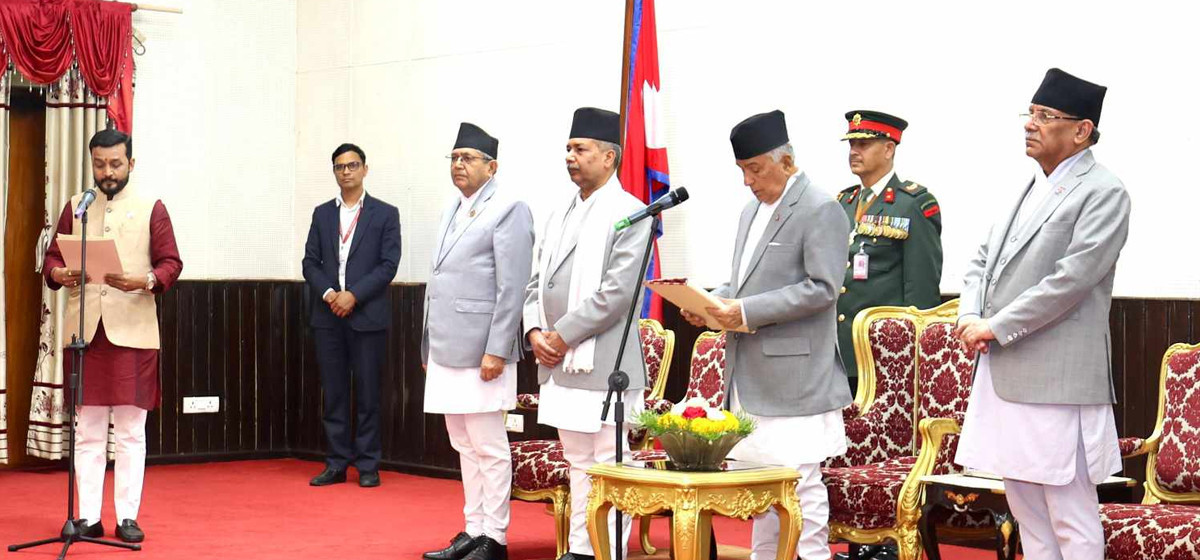
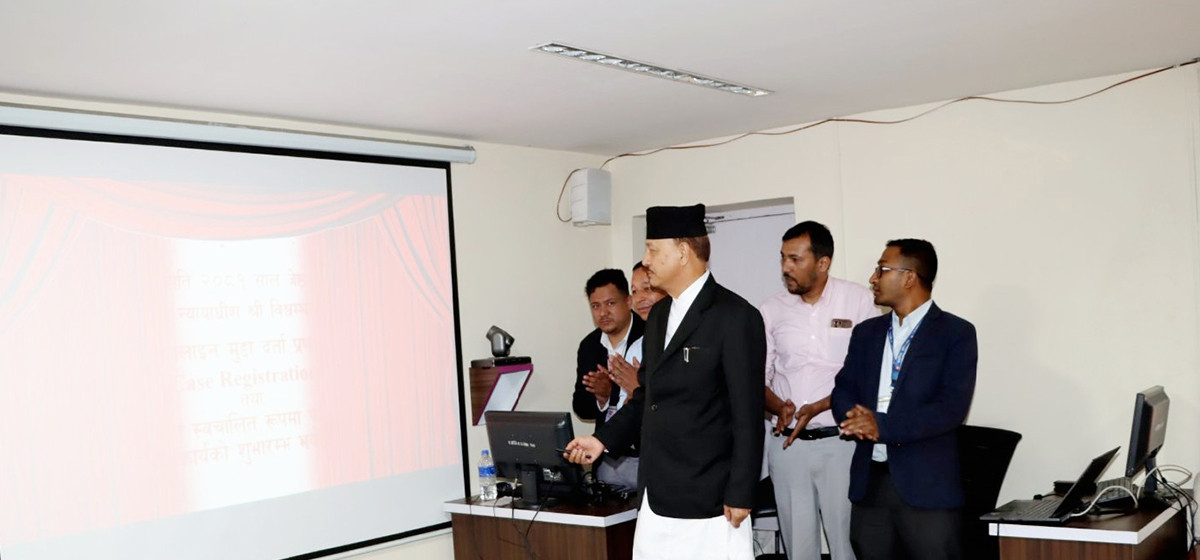
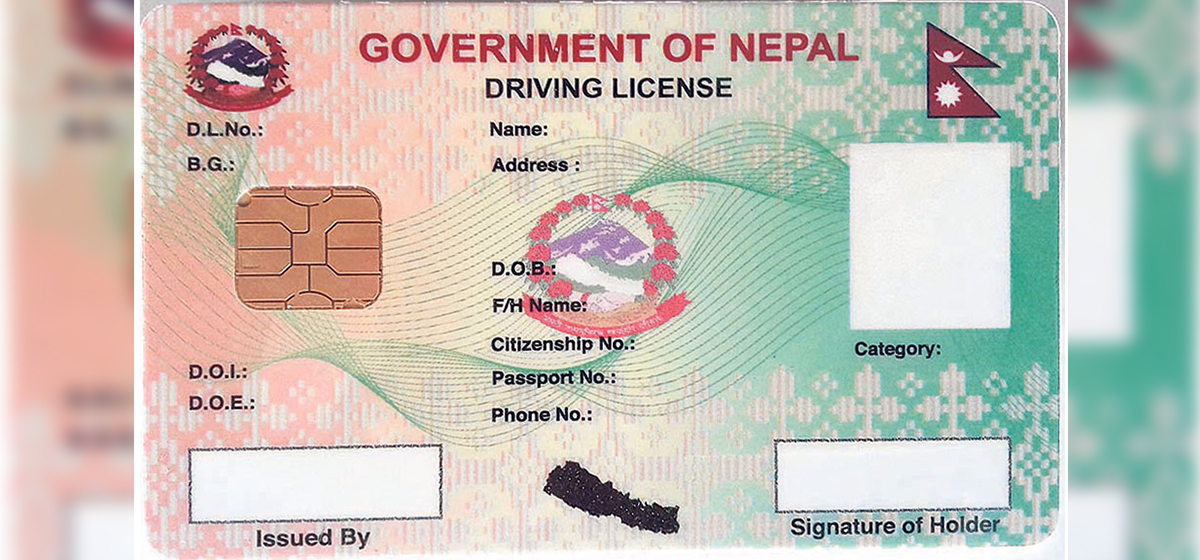
Just In
- Sudurpaschim govt spends just 34.5% of allocated budget in 10 months of current FY
- SC launches online registration of cases
- NEPSE surges 28.62 points, daily turnover rises to Rs 4.08 billion
- Hearing on cricketer Lamichhane’s case to continue Wednesday
- Global IME Bank named ‘Best Bank in Nepal for 2024’ by Global Finance Magazine
- DoTM receives lab test report of driving license cards, preparing to distribute licenses
- KMC invites applications for environmental studies and experts in various fields
- Council of Ministers approves 16th Five Year Plan, aims to increase GDP to Rs 8.6 trillion after five years







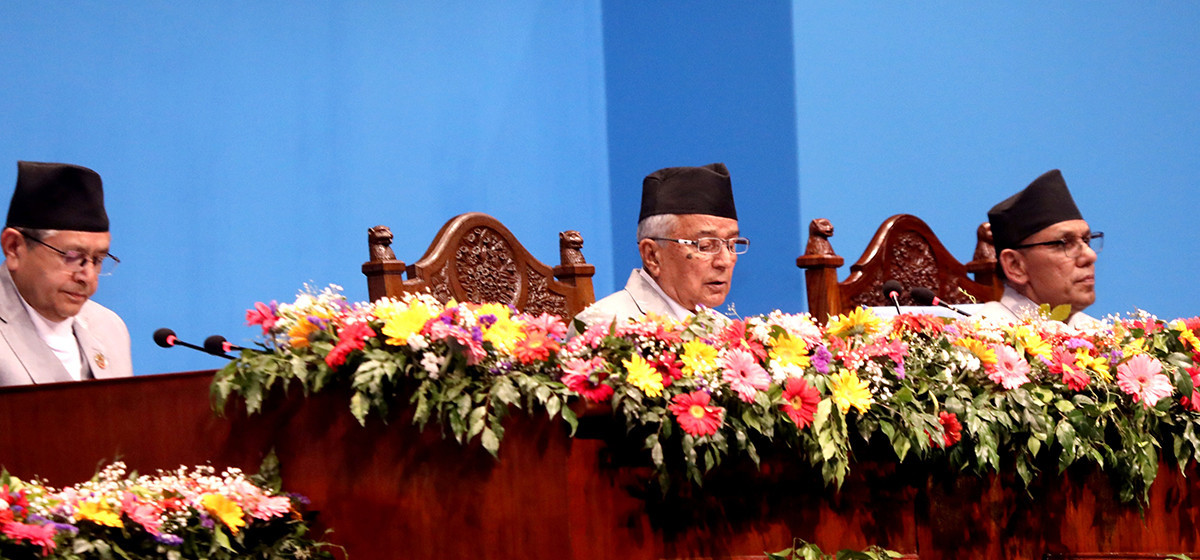
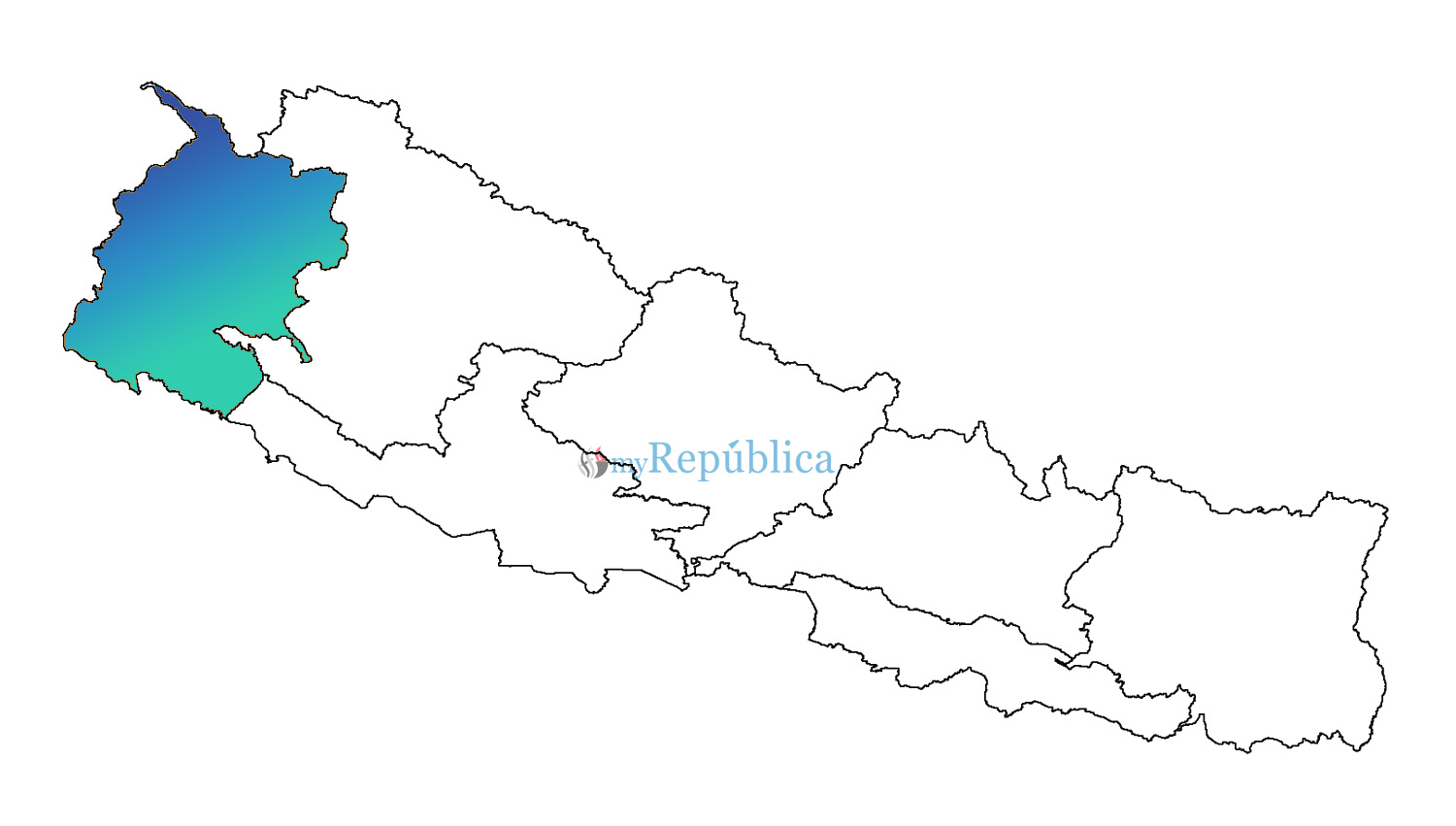

_20240514180252.jpg)
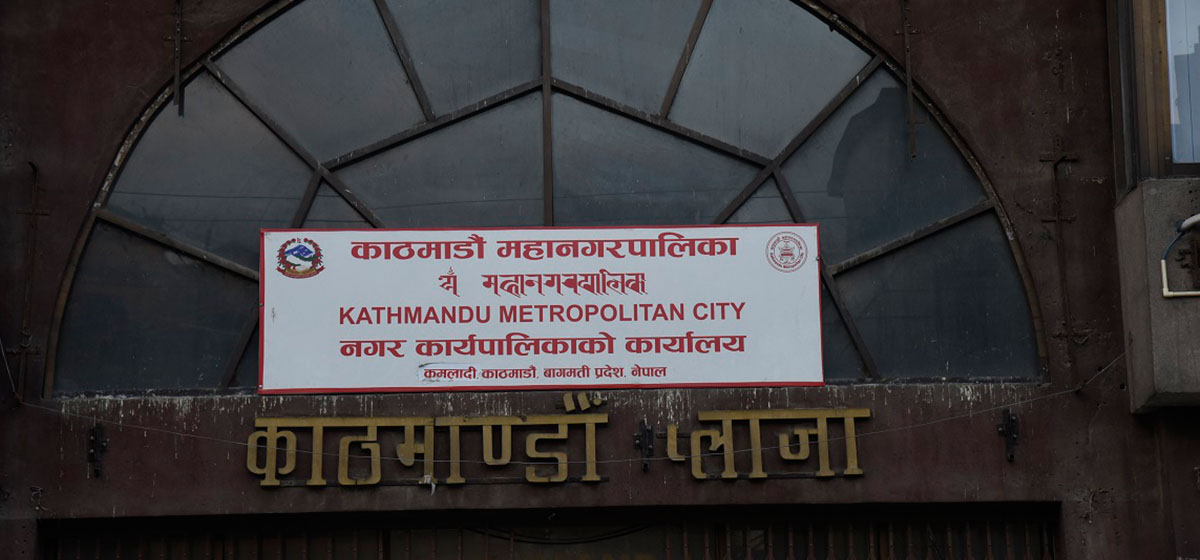

Leave A Comment